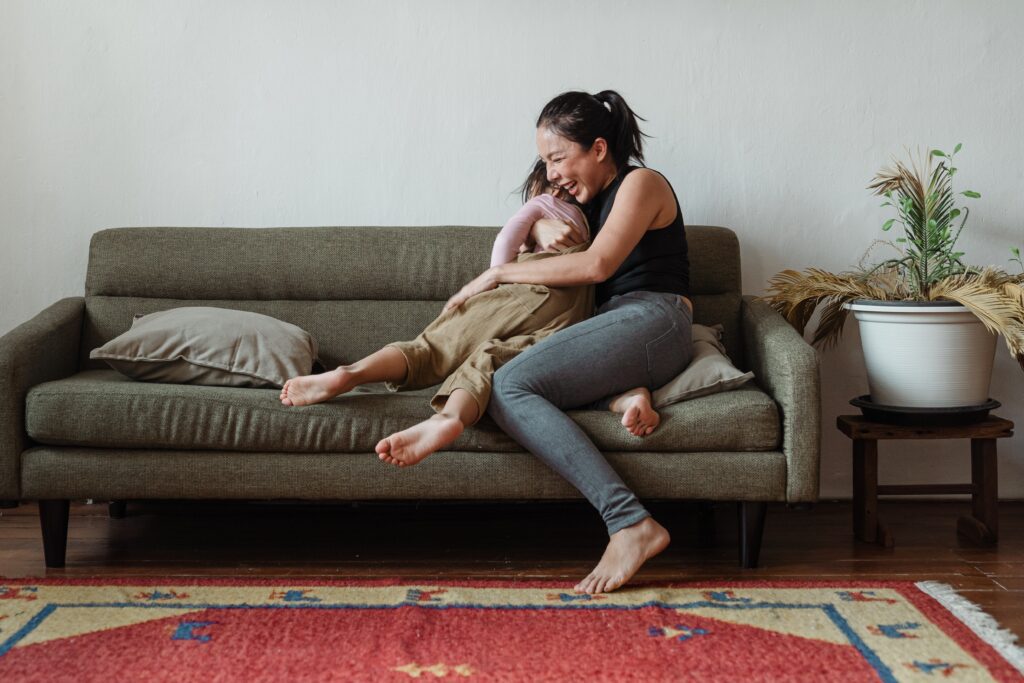BALANCING GENDER ROLES IN RELATIONSHIP
In today’s age of modern relationships, the dynamics of gender roles have undergone a major transformation. Binary roles may still exist, but traditional gender expectations no longer seem to be in play as much as before. This shift has paved the way for more equitable and balanced relationships, where individuals are empowered to express themselves authentically, free from the constraints of stereotypical gender roles.
However, this does not mean that stereotypical gender roles do not still exist within our relationships. Often, certain stigmas and roles still play a large part in the way we interact with each other. In the past, men were expected to be the providers, and unemotional, while women were tasked with nurturing, caregiving, and emotional labor. These societal constructs not only limited individual expression but also placed undue pressure on both partners to conform to these roles, often at the expense of their mental health.
Today, though these stereotypes’ impacts have been reduced, we see the long lasting effect. Recognizing the negative impact of traditional gender expectations on mental health is only the first step towards achieving healthier, more balanced relationships. It is essential to adopt a therapeutic perspective that encourages open communication, self-awareness, and a willingness to challenge societal norms.

UNDERSTANDING GENDER ROLES IN RELATIONSHIPS
Gender roles are societal expectations and norms that dictate how individuals should behave, present themselves, and fulfill certain roles based on their perceived gender identity. These roles have been deeply ingrained in human societies throughout history, often shaping the dynamics of relationships and individual identities.
Historically, gender roles have been defined in binary terms, with rigid expectations for men and women. In many cultures, men were expected to be the breadwinners, responsible for providing for their families and embodying qualities such as strength and stoicism. Women, on the other hand, were expected to assume roles centered around caregiving, nurturing, and homemaking. These traditional gender roles were reinforced by cultural, religious, and societal norms, perpetuating a fixed understanding of masculinity and femininity.
In recent years, there has been a growing recognition of the fluidity of gender roles. Society is evolving to embrace a broader understanding of gender identities beyond just male and female, acknowledging that gender is a complex and diverse spectrum. This shift has opened the door to more inclusive and flexible relationship dynamics.

THE LINK BETWEEN GENDER ROLES AND MENTAL HEALTH
Imbalanced gender roles within relationships can be a significant source of stress and mental health challenges for individuals and couples alike. These challenges stem from the tension between societal expectations and the desire for more equitable partnerships, which can lead to a range of psychological and emotional issues.
1. Anxiety and Depression
One of the most prevalent mental health challenges associated with imbalanced gender roles is the increased risk of anxiety and depression. When individuals feel compelled to conform to traditional gender expectations that do not align with their authentic selves, it can result in a profound sense of internal conflict. Men who believe they must always project emotional restraint may suppress their feelings, leading to a build-up of emotional distress. Similarly, women who feel pressured to be caregivers at the expense of their own needs may experience resentment and emotional exhaustion.
2. Low Self-Esteem and Self-Worth
Imbalanced gender roles can erode an individual’s self-esteem and self-worth. When people are pigeonholed into restrictive roles that limit their personal and professional growth, they may begin to doubt their capabilities and value. Men who are conditioned to be the primary providers may experience a sense of failure if they cannot meet these expectations, while women who are expected to prioritize caregiving may feel undervalued in other aspects of their lives.
3. Relationship Conflicts and Dissatisfaction
The impact of imbalanced gender roles extends beyond individual mental health and can spill over into relationship dynamics. When couples are trapped in traditional roles that do not align with their values or desires, conflicts are likely to arise. For instance, disagreements over the division of household responsibilities, career aspirations, or emotional support can become recurring sources of tension.
THERAPEUTIC APPROACHES TO BALANCING GENDER ROLES
Open and honest communication is crucial in building balanced and healthy relationships. Open and honest communication serves as a bridge to understanding, empathy, and personal growth. When it comes to addressing gender roles within partnerships, effective communication is not just beneficial; it is essential. Discuss your expectations and desires and create a psychologically safe space for dialogue.
One of the primary objectives of these conversations is to challenge and redefine traditional gender roles. Partners can explore how these roles have impacted their lives and assess whether they align with their authentic selves and relationship goals. Recognizing the need for change is the first step toward embracing more balanced roles.
In the pursuit of balanced gender roles, couples should embrace the concept of equal partnership. This means recognizing that each partner’s contributions, whether in terms of finances, caregiving, emotional support, or decision-making, are equally valuable. It’s about valuing each other’s strengths and actively working together to create a partnership that feels fair and fulfilling – encouraging sharing responsibilities and joint decision-making.
Effective communication also involves building emotional intelligence and empathy. Partners should strive to understand not only their own emotions but also those of their significant other. Empathy enables them to appreciate each other’s perspectives and experiences, fostering a deeper connection. Make sure you are actively listening and understanding each other’s perspectives when you are communicating.
Sometimes, despite best efforts, couples may encounter challenges that require professional intervention. Recognizing when therapy may be necessary is a crucial step towards addressing gender role-related issues effectively. Signs that therapy may be needed include persistent relationship conflicts, a sense of emotional distance, or feelings of helplessness in addressing gender role-related issues. Couples should be attuned to these indicators and consider seeking professional help when they arise.

CHALLENGES & POTENTIAL ROAD BLOCKS
Embracing change within the realm of gender roles in relationships is not always met with open arms. Society often exerts immense pressure to conform to established norms, making it challenging for individuals and couples to break free from traditional gender expectations. The resistance to change can manifest as external judgment, societal stigmatization, or even internalized beliefs. Overcoming this resistance requires determination and a steadfast commitment to the pursuit of healthier, more balanced relationships.
Cultural and familial expectations can also be particularly daunting obstacles to change. Many cultures have deeply ingrained beliefs about gender roles that have been passed down through generations. These expectations can be in conflict with an individual’s desire for more equitable partnerships. Coping with these expectations may involve difficult conversations with family members and communities, as well as a willingness to chart a new path that aligns with personal values.
On a personal level, individuals may deal with insecurities and fears as they challenge traditional gender roles. These insecurities may come from concerns about judgment, the fear of not meeting societal standards, or doubts about one’s ability to navigate unfamiliar roles. Overcoming these internal barriers requires self-compassion, self-acceptance, and a supportive network of friends and partners who champion personal growth and authenticity.
In the face of resistance to change and societal pressures, it’s important to remember that the journey towards balanced gender roles is a deeply personal one. It involves not only shifting external expectations but also fostering inner resilience and self-assuredness. By confronting cultural and familial expectations and addressing individual insecurities, individuals and couples can take significant steps toward forging relationships that reflect their true values and aspirations.

